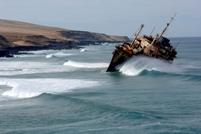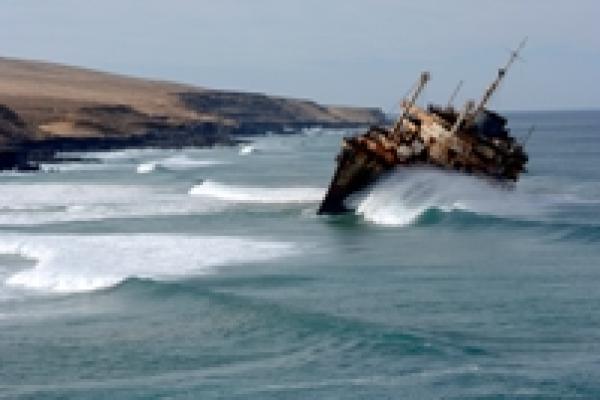
Steamship Mutual
Published: February 01, 2010

The “no cure-no pay” element to salvage makes it an inherently uncertain business to enter into. However, salvors are hugely important to the shipping industry and they therefore need to be encouraged. The parameters set out in Article 13.1 of the London Salvage Convention (LSC) 1989 (International Convention on Salvage (London, April 28, 1989)) were designed to do just that and, in assessing the salvage reward, an arbitrator must adhere to these. The ten criteria include the size of the salved fund, the skill and success of the salvors, the degree of danger involved, the availability of salvage equipment and the state of readiness of the contractors. In fact, the principle of encouragement is expressly mentioned in the Article and the courts and arbitrators have since interpreted it to be the central consideration around which the ten criteria orbit.
In the recent Admiralty Court case of “The Ocean Crown”[2009] EWHC 3040 (Admlty) the limits of the Article 13.1 provisions were tested following some dispute in the arbitration process.
M.V. “Ocean Crown”, a handy sized bulk carrier, was laden with some 50,000 tonnes of copper concentrates. When she ran aground in the Canal Darwin, off Chile, in August 2007 Five Oceans Salvage Consultants were engaged under an agreement on the LOF Standard Form to salve the vessel and her cargo. Remuneration, providing Five Oceans were successful of course, was to be established by arbitration in London. After 107 days and at a cost of $18m, the contractors successfully redelivered the vessel and the cargo. The salved fund was large, totalling well over $150m. At first instance, the arbitrator awarded $34,500,000 as remuneration. Five Oceans appealed this decision. The salvage fund was therefore increased to $40,750,000, the appeal arbitrator having further taken into account the skill of the salvors, the size of the salved fund and the expense incurred by the contractors, as well as three other more contentious considerations.
In the present case, the owners of the vessel (and others) appealed the decision, questioning the appeal arbitrator’s interpretation of the law in terms of;
(1) whether future difficulties in economic conditions should be taken into account when assessing salvage remuneration,
(2) if so, whether actual economic conditions experienced between the date of termination of the services and the award are relevant, and
(3) whether the principle that an award must not be disproportionate to the services rendered, as per “The Amerique” (1874) L.R. 6 P.C. 468, did not apply to complex cases such as this.
The first two grounds for appeal were considered together by Gross J as a discussion on encouragement and the boundaries of the Article 13.1 criteria. That a large reward was due to the contractors was not in dispute. In fact, reiterating what the appeal arbitrator had said, Gross J went to great lengths to emphasize the important role which salvors play in shipping. An award, he suggested, must be sufficiently high so as to encourage salvors to continue not only to respond to casualties, preventing financial losses and environmental catastrophes, but also to leave tugs idle, yet ready, to conduct salvage and to invest in superior equipment and personnel. There is, therefore, both an economic and an environmental significance to encouraging salvors and their readiness to conduct operations. However, it was held that where the appeal arbitrator erred in law was in his wide interpretation of Article 13.1 of the LSC 1989. The appeal arbitrator stated:
“In my view, another factor to be borne in mind is that encouraging awards provide the professional salvor with a cushion in difficult times. When this service was performed the market was very buoyant, as demonstrated by the high rates of hire for the lightning vessels and hull values. Since then there has been a dramatic collapse. If this service were performed today it would perhaps cost less, but the difficulty in obtaining loans and credit in the current economic climate offsets that consideration. Without some reserve, salvors face a financing problem in larger cases”.
It was held that the principle of encouragement does not warrant raising the award in order to provide salvors with a cushion for future economic turbulence. Gross J held that such a provision would lead to double counting, because the salved fund was higher than normal on account of the strong economic climate in 2007. To take into account any future downturn and, therefore, to raise the award “would give salvors the best of both worlds”. Furthermore, it is extremely unlikely that an arbitrator would reduce the reward on the likelihood that there was an upcoming boom. These considerations, of course, say nothing of the imperfections involved in predicting economic downturns, a science Gross J felt it would be inappropriate for arbitrators to flirt with. However, most crucially of all, economic fluctuations are not one of the Article 13.1 criteria. It is therefore clear that the courts consider the list to be comprehensive and not open to interpretation.
When dealing with high value funds, the courts will consider a long established principle from “The Amerique”. Specifically, whilst the salved value of the vessel and its cargo must be borne in mind when determining the salvage award, it must not be to such an extent that the quantum becomes altogether disproportionate to the services rendered. This principle has since been affirmed in The Glengyle [1898] A.C. 519, HL and The Queen Elizabeth (1949) 82 Lloyd’s Rep. 803.As Gross J précised: “no simplistic ‘percentage’ approach can be adopted.” However, the appeal arbitrator suggested that this principle is less significant in “complex and arduous cases of almost continuous activity requiring [salvors] to exhibit diverse salvage skills” and that in the present case “the principle in “The Amerique” does not apply in terms.”
Gross J was very clear in his judgement; there is no authority indicating that the principle discussed herein does not apply to complex cases and the appeal was therefore allowed.
In Issue (3) therefore, just as in Issues (1) and (2) the appeal was upheld. However, rather than reinstating the decision from the first instance arbitration, as was the appellant’s preference, Gross J remitted the decision back to the appeal arbitrator for reconsideration.
The appeal arbitrator has since reduced the salvage remuneration by $750,000 to $40m. In doing so, appeal arbitrator Mr. John Reeder suggested that some reduction was necessary, conceding he was incorrect to take into account future economic conditions. However, he indicated that this issue provided limited weighting to his original assessment of the award. Further, Mr. Reeder reiterated his stance that the salvage operation undertaken by Five Oceans “was a major and impressive service and this feature must be adequately reflected in any reward.” In this respect, he suggested that he had not, in fact, disregarded the principle found in “The Amerique” and that the large payout was not, in his view, disproportionate to the service.
Even after the recent reduction, the total remuneration remains the second highest ever award under a Lloyd’s Open Form, after the $47m reportedly awarded for the salvage of “APL Panama”off Mexico in 2006.
Owners of the Vessel Ocean Crown, her Bunker, Stores and Cargo & 5 Others V Five Ocean Salvage Consultants Ltd (The “Ocean Crown”) [2009] EWHC 3040 (Admlty)


